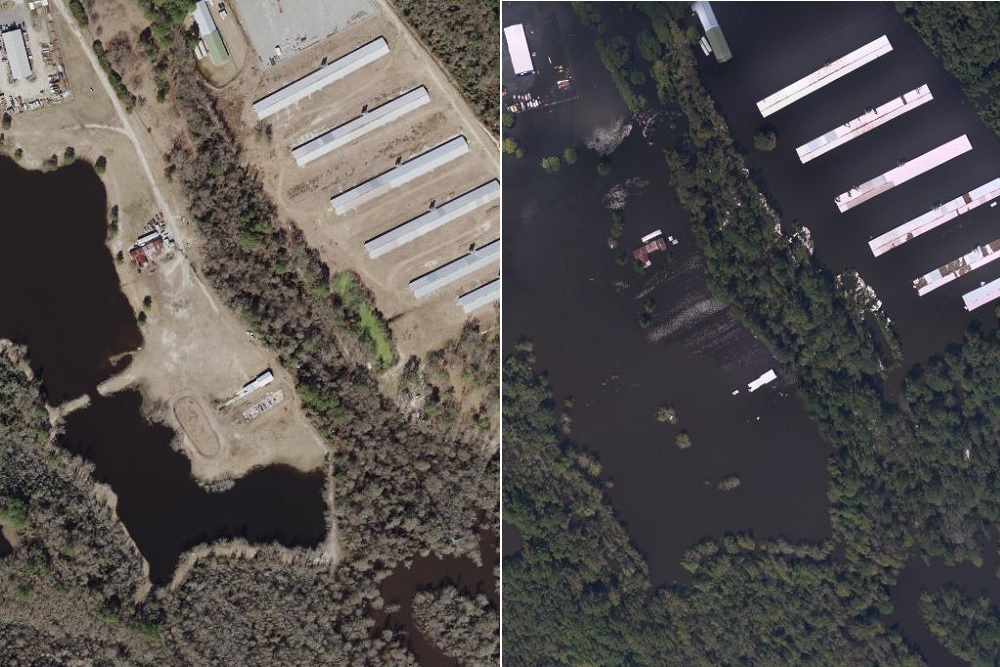A New Hanover-area physician and the deputy director of a Cape Fear River environmental group were among local residents who addressed a North Carolina Department of Environmental Quality public input meeting in Duplin County last week.
Emergency medicine physician Robert Parr and Cape Fear River Watch Deputy Director Dana Sargent both addressed state DEQ officials and about 300 gathered at the public input meeting over food animal permit renewal. The meeting took place Feb. 19 at James Sprunt Community College in Kenansville.
Parr, who regularly gives talks about rising sea levels in New Hanover County and other area environmental issues, has lived on the shores of Howe Creek since 1984. Before attending medical school, Parr was an oceanographic consultant and he holds a master's degree in biological oceanography from Oregon State University.
During his remarks, Parr said air pollution in eastern North Carolina counties is among the worse in the state, noting that the industrial-scale farms in those counties emit 168 different kinds of gasses.
"If you look at the health statistics for the counties of this area, they're dismal," Parr said. "Duplin County, on a scale of 100, ranks 68 in health scores. You want to be No. 1, Duplin County is 68. Sampson County, 79. Bladen County is 95 and Columbus County is 96."
Sargent's remarks directly called out Smithfield Foods, based in Virginia and owned by the world's largest pork company, WH Group in China, to voluntarily operate in a more-sustainable manner and to better treat their employees.
About 90 percent of pork production in North Carolina is processed through Smithfield Foods.
"I, for one, empathize with the workers," Sargent said. "They need their jobs and I respect that."
Sargent asked state DEQ officials to require "the multi-billion-dollar integrators, like Chinese-owned Smithfield," to do a better job with waste water management.
"These corporations should be voluntarily paying for cleaner water management processes to benefit their employees and to pay their workers enough to compensate for their time spent in reporting and working in these facilities in a sustainable way," she said. "The corporations should not be requiring their workers come here and defend their integrators to ensure that the corporations' costs are kept as a minimum. They should be providing fair contracts to their workers. It should not be creating an environment that pits neighbors against neighbors."




 Alerts Sign-up
Alerts Sign-up